Satyen Bose

Subscribe to read full article
This section is for paid subscribers only. Our subscription is only $37/- for one full year.
You get unlimited access to all paid section and features on the website with this subscription.
Not ready for a full subscription?
You can access this article for $2 , and have it saved to your account for one year.
- Born: 22 January, 1916 (Purnea, Bihar)
- Died: 9 June, 1993 (Bombay)
- Primary Cinema: Hindi
An accomplished director who delivered some of the biggest hits of his time, Satyen Bose was born in Purnea, Bihar on 22 January, 1916. A Commerce graduate from Bidyasagar College, Calcutta, Bose worked in the railways and in a bank. During his student years, he was a keen participant in amateur theatre. He went on to set up National Progressive Pictures in 1948 with his friends. The banner produced Hemen Gupta’s Bhuli Nai (1948) in Bengali.
Bose made his directorial debut with the Bengali film Paribartan (1949), which he also wrote. A reformist children’s film, it revolved around the themes of life at a boarding school and the bittersweet experiences of growing up. His Barjatri (1951), starring Kali Banerjee in the lead role, combined realism with comedy. It was praised by Satyajit Ray, no less, for its essential Bengali ethos, witty dialogues and naturalistic style of acting. Bose, it must be noted, had no formal training in direction. Moving to Bombay late in 1953, he went on to direct Jagriti (1954) in Hindi, based on Paribartan. Jagriti is considered one of Indian cinema’s best children-centric films. Starring Bipin Gupta, Abhi Bhattacharya, Raj Kumar Gupta, Mumtaz Begum and Ratan Kumar in the lead roles, the film won the Filmfare Award for Best Film at the 3rd Filmfare Awards in 1956. Abhi Bhattacharya also received the Filmfare Award for Best Supporting Actor for his outstanding performance in the film. Jagriti is also known for its classic patriotic songs, such as Aao bachchon tumhe dikhaye by Kavi Pradeep, Chalo chale maa, and Sabarmati ke sant tune rendered by Asha Bhosle, and Hum laaye hain toofan se sung by Mohammed Rafi. Bose’s sensitively directed film was screened retrospectively on 14 August, 2016 at the Independence Day Film Festival jointly presented by the Indian Directorate of Film Festivals and Ministry of Defence, commemorating the 70th Indian Independence Day.
Satyen Bose’s Dosti (1964), produced by Tarachand Barjatya, and distributed by Rajshri Productions, focused on the friendship between two boys: one blind and the other physically-handicapped. Featuring Sudhir Kumar and Sushil Kumar, the film was amongst the top ten highest grossing films of the year, and was declared a super hit at the box office. It was entered into the 4th Moscow International Film Festival, and was also remade in Malayalam and Telugu. This moving Bose directorial also won six Filmfare Awards out of seven nominated categories, including Best Film.
To Bose also goes credit for giving Nargis her perfect swansong with Raat Aur Din (1967). Nargis’s performance as a woman with dissociative identity disorder won the first National Award for Best Actress. By day, she is Varuna, a typical Hindu homemaker, whilst at night she calls herself Peggy and walks the streets of Calcutta. Raat Aur Din won Bose critical acclaim for its story, also developing a cult following over the years.
In contrast to these serious-themed films, Satyen Bose showed the diversity of his talent, directing the frothy comedy Chalti Ka Naam Gaadi (1958), which portrays the impact on the lives of three woman-hating brothers when two of them fall in love. Featuring Kishore Kumar, his two brothers Anoop Kumar and Ashok Kumar, and Madhubala, the film was the second highest-grossing Indian film of 1958. It includes many songs rendered by Kishore Kumar, along with Asha Bhosle. Bose had earlier worked with the Ganguly brothers in Bandi (1957). A melodrama based on Sailajananda Mukherjee’s Bengali film Bondi (1942), it featured Kishore Kumar in one of his rare serious roles.
Another Satyen Bose hit directorial was Mere Lal (1966). Starring Dev Kumar, Indrani Mukherjee and Mala Sinha, it focuses on a stonehearted dacoit who finds himself thrust with the responsibility of bringing up a lost child he finds on a riverbank. The dacoit goes on to mend his ways and becomes an honest wage-earner.
Among Bose’s directorials are Bandish (1955), Rickshawala (1955), Sitaron Se Aage (1958), Savera (1958), Masoom (1960), Daal Me Kala (1964), Aasra (1966), Wapas (1969), Aansoo Ban Gaye Phool (1969), Jeevan Mrityu (1970), Mere Bhaiya (1972), Anokhi Pehchan (1972), Mastan Dada (1977), Anmol Tasveer (1978), Saanch Ko Aanch Nahin (1979), Payal Ki Jhankaar (1980), Tumhare Bina (1982), and Kaya Palat (1983).
Bose made his Malayalam debut with the film Jeevitha Samaram (1971). Produced by Tarachand Barjatya, the film starred Dharmendra, B G Jagirdar and Leela Chitnis .
He last directed the drama Woh Din Aayega (1987), featuring Ashok Kumar, Rajan Sippy, and Raj Kiran.
Satyen Bose passed away on 9 June, 1993.
-
Filmography (24)
SortRole
-
Woh Din Aayega 1987
-
Kaya Palat 1983
-

Tumhaare Bina 1982
-
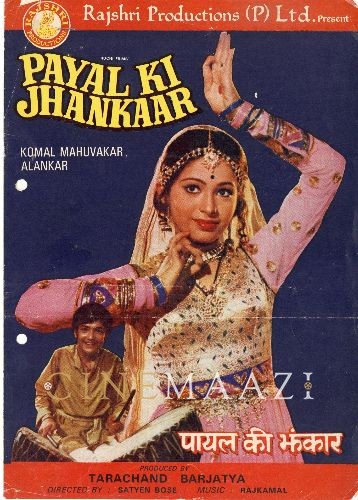
Payal Ki Jhankaar 1980
-

Bin Maa Ke Bachchey 1979
-
Anmol Tasveer 1978
-

Mastan Dada 1977
-
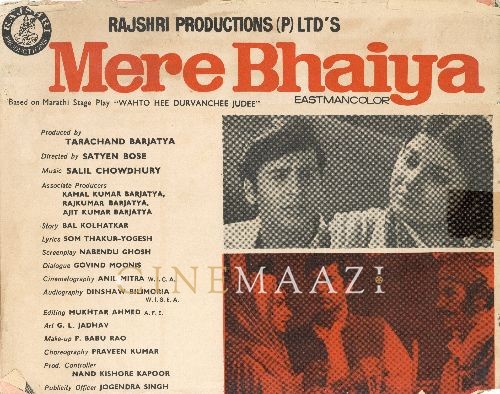
Mere Bhaiya 1972
-
Jeevitha Samaram 1971
-
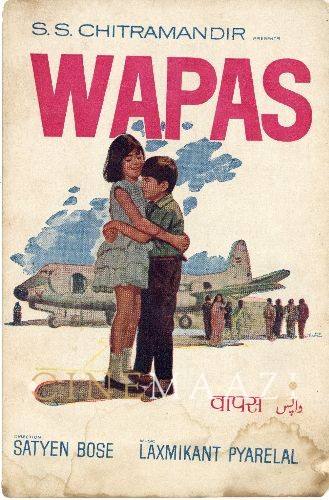
Wapas 1969
-
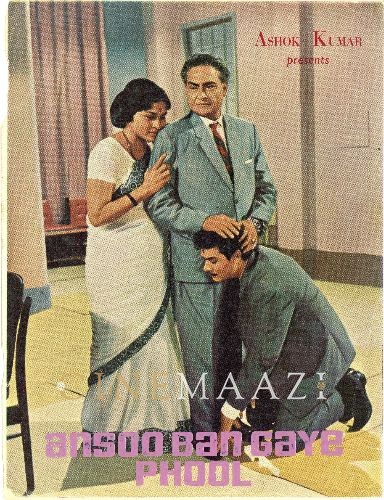
Ansoo Ban Gaye Phool 1969
-






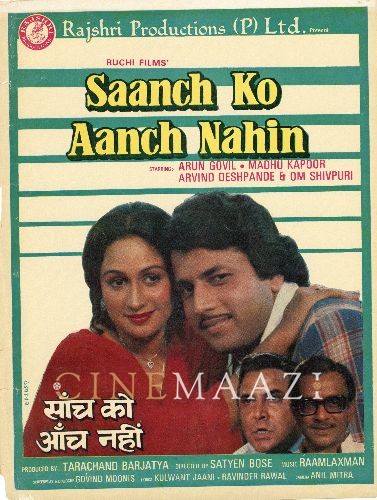




.jpg)



